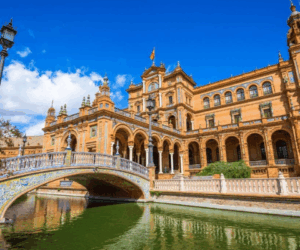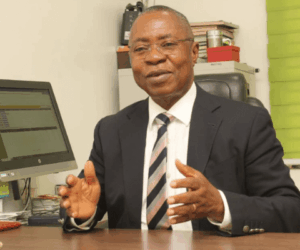This article takes the position that the current effort of the management of the Nigerian National Petroleum Company Limited (NNPCL) to find technical partners to manage its refineries amounts to groping in the dark or looking for something you know is nowhere to be found. The article is of the view that the most rational solution to the serial problems and failed turnaround management (TAM) of the refineries in the last four decades is to sell them.
An article published by BusinessDay on January 30, 2020, claimed that Nigeria spent $25 billion in the previous 25 years rehabilitating the three NNPC refineries in Port Harcourt, Warri and Kaduna. The House of Representatives also alleged on March 24, 2021, that NNPC had spent N11.35 trillion, or over $25 billion, on the rehabilitation of the refineries in the previous twenty years, with no results to show for the colossal amounts spent.
Read also: Senate rejects NNPCL’s explanations on missing ₦210trn
Aliko Dangote, Africa’s foremost industrialist and promoter of Dangote Refinery and Petrochemicals, said in July 2025 while hosting a delegation of CEOs at his refinery that NNPC had spent $18 billion on the rehabilitation of the refineries since he returned them to President Umaru Yar’Adua in a failed privatisation transaction in 2007. He said the refineries will not work. After the return of the refineries by Dangote, President Olusegun Obasanjo also went and told his successor, President Umaru Yar’Adua, that the refineries would not work based on credible expert advice he received, which led to his decision to sell the refineries to Aliko Dangote.
Before the award of the three contracts by the Buhari Administration, between March and August 2021, to rehabilitate the three refineries, there was strong opposition from the informed public to what they saw as another round of wasteful spending on government-owned refineries generally considered moribund at a time the government was cash-strapped and the nation was in deep economic crisis. NNPC embarked on a massive media campaign in support of the rehabilitation of the refineries, with strong political support from the Ministry of Petroleum Resources. The government had made up its mind. So, in March 2021, it approved $1.5 billion for the overhaul of the Port Harcourt refinery complex into virtually a new facility. It was subsequently awarded in August 2021 two separate contracts of $897.67 million and $586.7 million for the repairs of the Warri and Kaduna refineries, respectively. Of the three refineries, only the Port Harcourt Refinery was recommissioned briefly between November 2024 and May 2025 before it was shut down till today. The total contract sum was $2.98437 billion, or a global sum of $3 billion.
“It will be difficult to find government-owned petroleum refineries anywhere else in the world that have been so grossly mismanaged over a period of four decades.”
A new board and management were appointed for NNPCL on April 2, 2025, with Mr Ahmadu Musa Kida as Chairman of the Board and Mr Bashir Bayo Ojulari appointed as Group Chief Executive Officer. This marked a new beginning for NNPCL, as both are top-notch oil and gas professionals. Coincidentally, the same day, Thursday, July 11, 2025, that Mr Aliko Dangote expressed doubts whether NNPCL refineries might ever work again was the same day that the new GCEO of NNPCL granted Bloomberg an interview in Vienna, Austria, where he revealed that the organisation was, among other things, considering the option of selling the refineries as a result of the poor outcome of the last turnaround management (TAM) and the high degree of obsolescence of their equipment. This gave the impression that the new Board and management of NNPCL, led by high-flying technocrats, were adopting rational and dispassionate performance management criteria to turn around the fortunes of the serially mismanaged national oil company. But in a sudden change of position, NNPCL, on July 30, 2025, issued a press statement denying any plan to sell the refineries. Mr Ojulari confirmed the official position of the company, saying that the decision was to “focus on high-grade rehabilitation’ of the refineries, stating that outright sale was “highly unlikely as it would lead to further value erosion.”
It is difficult to understand what NNPCL meant by saying the selling of the refineries will “lead to further value erosion” or its plan to “focus on high-grade rehabilitation.” What could have led to more ‘value erosion’ than the recent $3 billion that went into the drain for turnaround management of the three refineries that did not work? And what more “high-grade rehabilitation” without further draining the national treasury in another round of rehabilitation whose outcome is doubtful?
What is evident is that Mr Ojulari’s Vienna Bloomberg interview sounded an alarm in the minds of groups with vested interests in the continued ownership of the refineries by the Federal Government. It is clear that in the subsequent fight between the new technocrats at the helm of affairs at NNPCL and the coalition of powerful interest groups, including politicians and the labour unions, the coalition won. Very little outcome is to be expected from the present effort of NNPCL to find ‘technical partners’ or ‘equity technical partners’ to revive the refineries, without further ‘value erosion’. It may be difficult to find equity partners who will co-invest with the government and run the refineries. The best might be technical partners who will run the refineries at a fee after the government has poured additional billions of dollars to further repair the refineries, after $3 billion has literally gone into a bottomless pit. It will be difficult to find government-owned petroleum refineries anywhere else in the world that have been so grossly mismanaged over a period of four decades.
The only rational, least-cost (minimising further wasteful public spending) and cost-effective option open to NNPCL and the government is to sell the refineries for whatever they may be worth in their present condition. The rationale is for the Federal Government to cut costs from a moribund asset or group of assets and extract whatever residual value from them through a transparent asset sale or privatisation process. The real value of privatisation is not the immediate financial value the government derives, but the potential of the transaction to turn around the asset in the hands of more efficient and more productive owners, which will then add considerable value to the economy in terms of job creation, income generation, wealth creation and contribution to the nation’s gross domestic product (GDP). Furthermore, the government would have saved future billions of dollars of asset rehabilitation or turnaround maintenance (TAM) expenses.
Read also: Court dismisses Dangote’s N100bn lawsuit against NNPCL over oil import licenses
Besides, the use of ‘technical partners’ to run the refineries is a vote of no confidence in the Nigerian management and technical personnel of the refineries. In the 21st century, running petroleum refineries is not rocket science. Which “technical partners” are running the 650,000-barrel-per-day single-train Dangote petroleum refinery?
The truth is, the real issue that has bedevilled NNPC refineries in the past four decades is not a lack of technical expertise. Nigerians have the technical expertise. The real issues are government ownership, political interference, and loss of financial autonomy by NNPC since the 1990s. If these issues persist with the coming on board of technical partners, the refineries will perform sub-optimally and the partnership will eventually fail. Even if NNPCL replaces the existing moribund refineries with new ones of the same or higher capacity, with the existence of the current climate of poor governance and intense political interference, the refineries will eventually fail.
Finally, with the plan by Dangote Refinery to more than double its size to 1.4 million barrels per day in the next three years and plans by other investors to build large-scale petroleum refineries in Nigeria, the danger is that the existing three NNPCL refineries will lose market value and end up as scraps if they are not sold quickly enough. Thus, the best option for the NNPCL refineries is for them to be sold quickly. The present NNPCL leadership knows what to do. They should be allowed to do the needful.
Mr Igbinoba is Team Lead/CEO at ProServe Options Consulting, Lagos.









